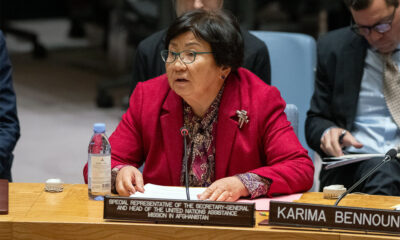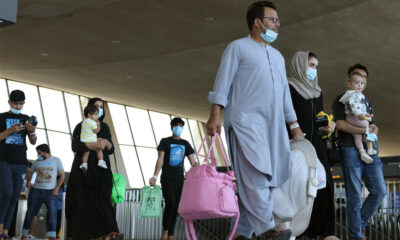Latest News
EU provides 13 million euros for malnutrition treatment and education in Afghanistan
Over 78,000 children in Afghanistan will benefit from additional funding for nutrition and Education in Emergencies from the European Union’s Civil Protection and Humanitarian Aid Operations (ECHO), UNICEF said in a statement.

The European Union has provided 13 million euros for malnutrition treatment and community-based education in Afghanistan, the United Nations' children agency (UNICEF) announced Sunday.
Over 78,000 children in Afghanistan will benefit from additional funding for nutrition and Education in Emergencies from the European Union’s Civil Protection and Humanitarian Aid Operations (ECHO), UNICEF said in a statement.
With this €13 million contribution, UNICEF will procure 62,000 cartons of Ready-to-Use Therapeutic Food (RUTF) and train 1,600 health workers to treat severe acute malnutrition among children under five. Additionally, UNICEF will improve the quality of learning in 275 community-based education classes to enable 9,500 children (61 per cent girls) to access primary education.
In Afghanistan, 23.7 million people – over half of them children – require humanitarian assistance this year. In 2024, nearly 2.9 million children are expected to face acute malnutrition. More than 850,000 of them will need treatment for severe acute malnutrition – a life-threatening condition, UNICEF said.
Education in Afghanistan also remains in crisis. According to the 2023 Multiple Indicator Cluster Survey, more than half of children do not attend primary school.
“The malnutrition rates in Afghanistan - especially amongst children - show that Afghanistan is facing an emergency. The EU will continue to work with longstanding humanitarian partners like UNICEF to provide urgently needed support, including nutrition and education in emergencies. Even amidst one of the worst humanitarian crises in the world, children have the right to quality education that will help them build a better future,” said François Goemans, Head of EU humanitarian aid in Afghanistan.
The two-year intervention will target about 69,000 children under the age of five for malnutrition treatment across 27 provinces of Afghanistan. It will help nearly 9,500 children and adolescents in four provinces continue their education through community-based learning, developing foundational skills, including social and emotional competencies for positive psychological development. The project will also enable emergency teaching and learning supplies to be delivered to children in need across all 34 provinces.
“We appreciate the continued partnership with EU humanitarian aid, which will help us get RUTF into some of the nutrition treatment facilities where children are most in need and train the frontline health workers administering this treatment in communities,” said Dr. Tajudeen Oyewale, UNICEF Representative in Afghanistan. “This funding will also enable children to continue attending community-based education classes and provide the materials students and educators need for a successful classroom.”
In the past four years, EU humanitarian aid has allowed UNICEF to provide safe water systems, community-based education, life-saving child protection and health services, emergency cash transfers, and malnutrition treatment for children.
Latest News
UNAMA chief to brief UNSC on Afghanistan on Wednesday
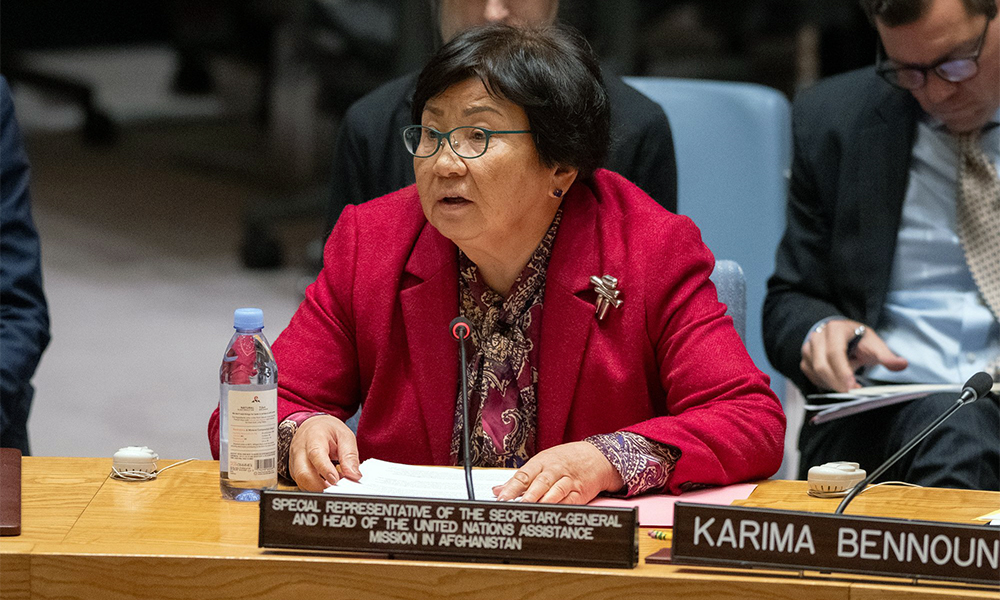
UN Secretary-General’s Special Representative for Afghanistan and head of UNAMA, Roza Otunbayeva, is expected to brief the UN Security Council on the situation in Afghanistan on Wednesday after UNAMA released its quarterly report Tuesday.
Tanja Fajon, Deputy Prime Minister and Minister of Foreign and European Affairs of the Republic of Slovenia, will preside over the meeting.
UNAMA’s latest report, which includes information gathered after the last report dated June 13, states that security incidents have increased against the same period last year; restrictions on women have increased, and almost more than 24 million people still need humanitarian aid.
The Islamic Emirate, meanwhile, expects that the reality of Afghanistan should be reflected in Otunbayeva’s report.
IEA has already asked UNAMA many times to reflect on the realities of Afghanistan in its reports and to refrain from exaggerating small issues.
Otunbayeva stated in her last report that by August 30 of this year, only 24.9 percent of the $2.9 billion dollars required for aid to Afghanistan had been provided.
Latest News
Haqqani meets with Japanese ambassador to Kabul
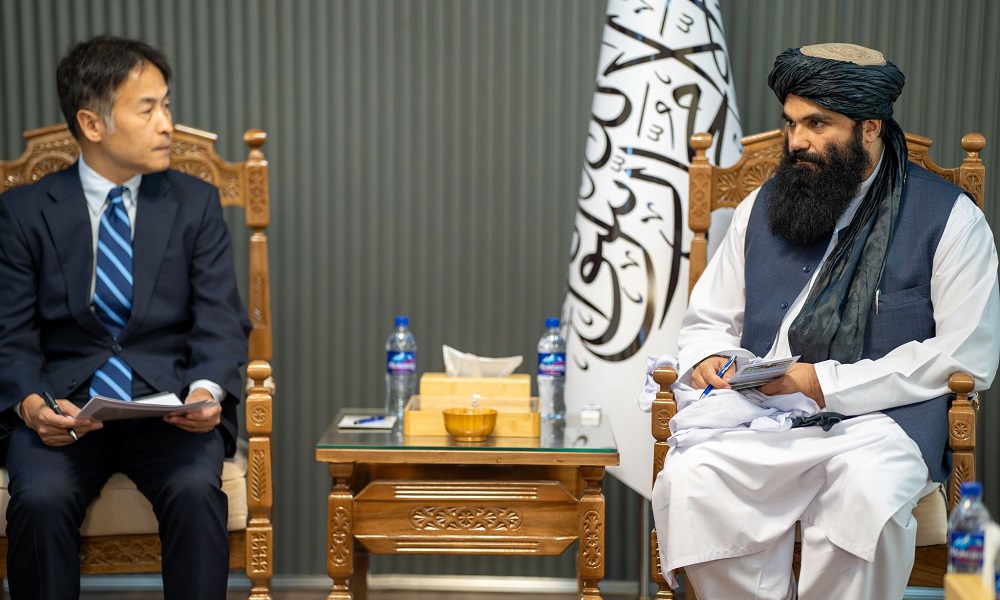
Acting Minister of Interior Affairs Sirajuddin Haqqani met on Tuesday with the Japanese Ambassador to Kabul,Takayoshi Kuromiya, the ministry said in a statement.
Abdul Matin Qane, the spokesperson for the Ministry of Interior, said in a post on X that apart from expressing satisfaction over the improved security situation, they discussed boosting Japan's aid to Afghanistan.
They also discussed a working group with UNAMA to tackle issues related to narcotics.
Latest News
IEA says Afghan embassy reopens in Oman
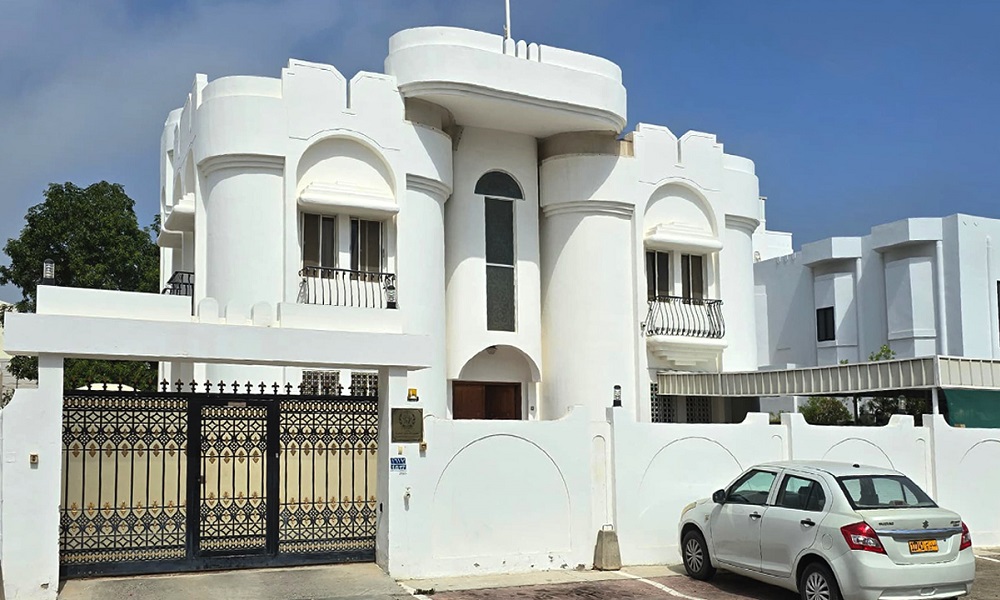
A spokesman for Afghanistan’s foreign affairs said Tuesday Islamic Emirate diplomats have been posted to Oman to reopen the Afghanistan embassy.
Hafiz Zia Ahmad Takal said in a post on X the embassy in Muscat opened last Sunday.
Takal added that resuming the activities of the Afghan embassy with the cooperation of the host country will play a constructive role in strengthening political, economic, social and religious relations between Kabul and Muscat.
-

 Latest News5 days ago
Latest News5 days agoPakistani defense minister slams KP chief minister’s Kabul talks plan
-

 Sport5 days ago
Sport5 days agoAfghanistan v NZ test abandoned without a ball bowled
-

 Sport5 days ago
Sport5 days agoRashid returns as Afghanistan call up fresh faces for South Africa ODIs
-

 Latest News5 days ago
Latest News5 days agoAfghan-origin gym owner shot dead in Delhi
-
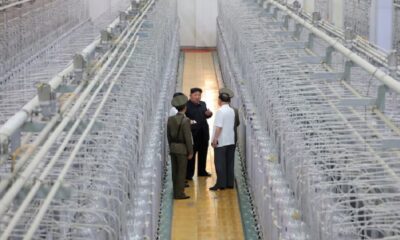
 World5 days ago
World5 days agoNorth Korea shows first photos of banned uranium enrichment site
-
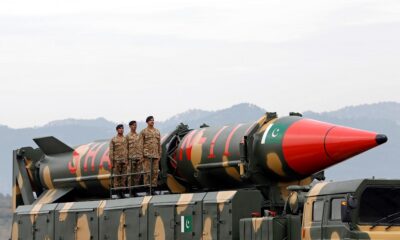
 Regional5 days ago
Regional5 days agoUS imposes sanctions on Chinese suppliers to Pakistan’s ballistic missile program
-
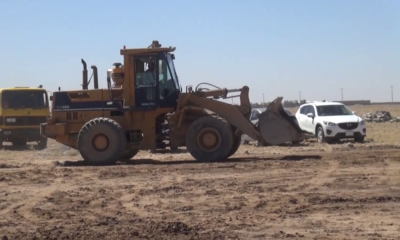
 Latest News4 days ago
Latest News4 days agoConstruction of largest terminal kicks off in Herat
-
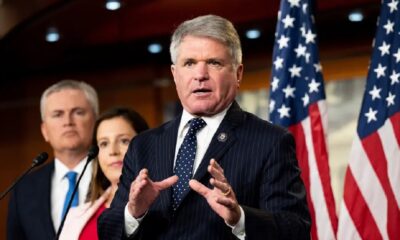
 Latest News4 days ago
Latest News4 days agoUS aid to Afghanistan should be conditioned on treatment of women and children: McCaul


